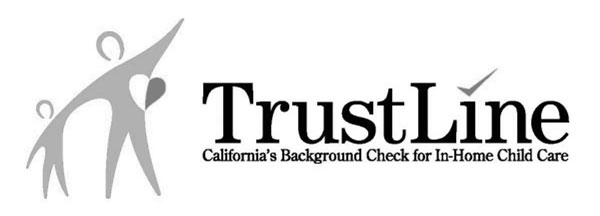If you are thinking about searching for a new job, you might be contemplating what your ideal role is and how your qualifications align.
But first, you’ll need to look at your resume to make sure it stands out. In other words, it needs to ‘pop’ and give prospective employers a clear and concise look into your expertise and your personality.
Your resume should list your biggest and most powerful accomplishments and should only be one or two pages.
WHO WE RECOMMEND
The Experienced Nanny offers personalized consulting resume development, and targeted training, focusing not on the nitty-gritty of childcare but on the softer skills needed to navigate the intricacies of home life.
Read our interview with Candi Vajana, resume guru at The Experienced Nanny
Avoid These Common Red Flags
There are typical resume red flags to avoid. Here are some common ones to consider and how to avoid them.
 Listing daily tasks.
Listing daily tasks.
Under each title, it’s common to see a daily list of ‘to-dos’. This is something to avoid. While it’s okay to mix some job duties in there, instead of listing each day-to-day duty or mundane task, list your biggest accomplishments or achievements in that role.
For example, employers don’t necessarily want to see that you coordinated regular meals as a personal chef. Instead, they want to see:
- What kind of private events you helped cook for
- How many people you regularly served
- Additonal highlights that make you unique.
Simply listing out your duties could make it appear that you didn’t put much effort into the resume.
 Too many graphics.
Too many graphics.
Getting too creative or artistic with your resume isn’t a great idea. This can make it too hard to follow for prospective employers or make it appear too much like a gimmick. Professionalism should always be front and center when you are applying for a new role.
Keeping a straightforward and simple approach that includes an easy-to-read format and font ensures the resume is easy to navigate. Make your qualifications easy to read, not difficult to discern – no colors, charts, pictures, or other graphics.
 Unclear dates of employment.
Unclear dates of employment.
When you list your dates of employment, always include the months and years that you were employed there.
For example:
This gives prospective employers a clear look at how much on-the-job expertise you have and shows that you’re not trying to exaggerate any dates of employment.
 Out of date or fake references.
Out of date or fake references.
While you’re working on revising your resume, be sure to check to make sure your references are up to date.
When employers call or email the people on your reference list, keep in mind that they will want to verify what you state in your resume and during your interview. So, don’t embellish your skills or proficiency in a specific role – the truth may really come out during final stage of the interview and hiring process and you would be left in an awkward position of trying to explain.
In short, your references should be able to easily point out your professional and personal strengths and serve as a great support in helping you find the right job.
 Missing training and certifications.
Missing training and certifications.
Be sure that your certifications, licenses, degrees, or other training are listed clearly on your resume. Employers want to see your commitment to your field of expertise and listing these toward the beginning of your resume can help tell your professional story and help you stand out in the sea of other candidates.
While not necessary, another good way to highlight your individuality is by showcasing your interests and commitments outside of work. If you regularly volunteer at a local organization, school or church, serve on the board of an area non-profit, or are passionate about community service, indicate that in a special section.
 Typos and poor grammar.
Typos and poor grammar.
Do a thorough edit of your resume to make sure there are no typos or grammatical errors. This demonstrates that you’ve taken the time to make sure it’s flawless and also shows that you pay attention to the details.
Get Hired!
Ready to start your job search and find a job that meets your criteria? Our team at Household Staffing can help find the right job match! Register with us and create your candidate profile today. Let us help place you with a role that you love.
Your Questions
Q: What should I focus on when listing my job experiences?
A: Focus on your most significant accomplishments and achievements in each role rather than listing daily tasks or mundane duties.
Q: Is it okay to use any graphics or creative designs in my resume?
A: It’s generally not recommended. Keep your resume straightforward and professional with an easy-to-read format and font. Avoid using colors, charts, pictures, or other graphics.
Q: Should I include my interests and volunteer work on my resume?
A: Yes, showcasing your interests and commitments outside of work, such as volunteer work or community service, can help highlight your individuality.
Q: How important is proofreading my resume?
A: Very important. A thorough edit to eliminate typos and grammatical errors demonstrates attention to detail and professionalism.
Q: How long should my resume be?
A: Your resume should be one or two pages long. It should be concise while still highlighting your most important qualifications and accomplishments.
Q: What should I do about my references?
A: Ensure your references are up to date. Remember that employers may contact them to verify your resume and interview information. Choose references who can speak to your professional and personal strengths.
Q: Where should I list my certifications, licenses, and degrees on my resume?
A: List these credentials at the beginning of your resume. This will help tell your professional story and can make you stand out from other candidates by demonstrating your commitment to your field of expertise.
-
Citations
- Resume.com: An online platform that provides tools, templates, and advice for creating professional resumes. https://resume.com
- Harvard Business Review: A prestigious business magazine that publishes articles on management, leadership, and professional development. https://hbr.org/
- Bureau of Labor Statistics: A U.S. government agency that collects, analyzes, and disseminates essential economic information to support public and private decision-making. https://www.bls.gov/
- Society for Human Resource Management (SHRM): A professional human resources membership association that provides resources, research, and certification for HR professionals. https://www.shrm.org/
- Grammarly: An AI-powered writing assistant that helps users improve their writing by checking for grammar, spelling, punctuation, and clarity issues. https://www.grammarly.com/
 Listing daily tasks.
Listing daily tasks.








